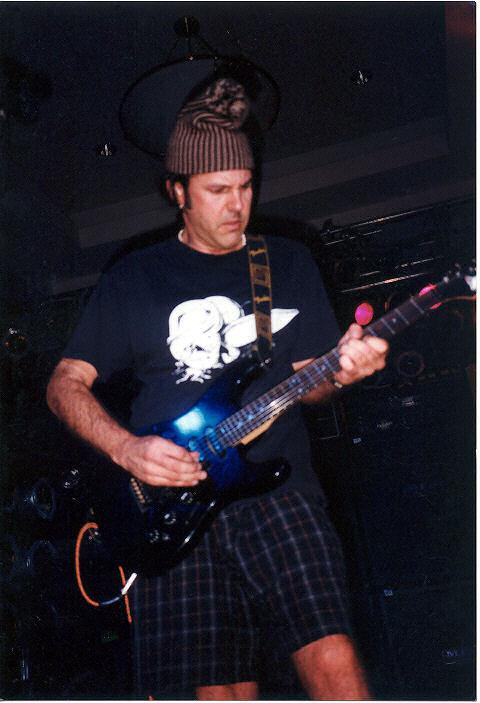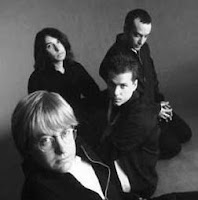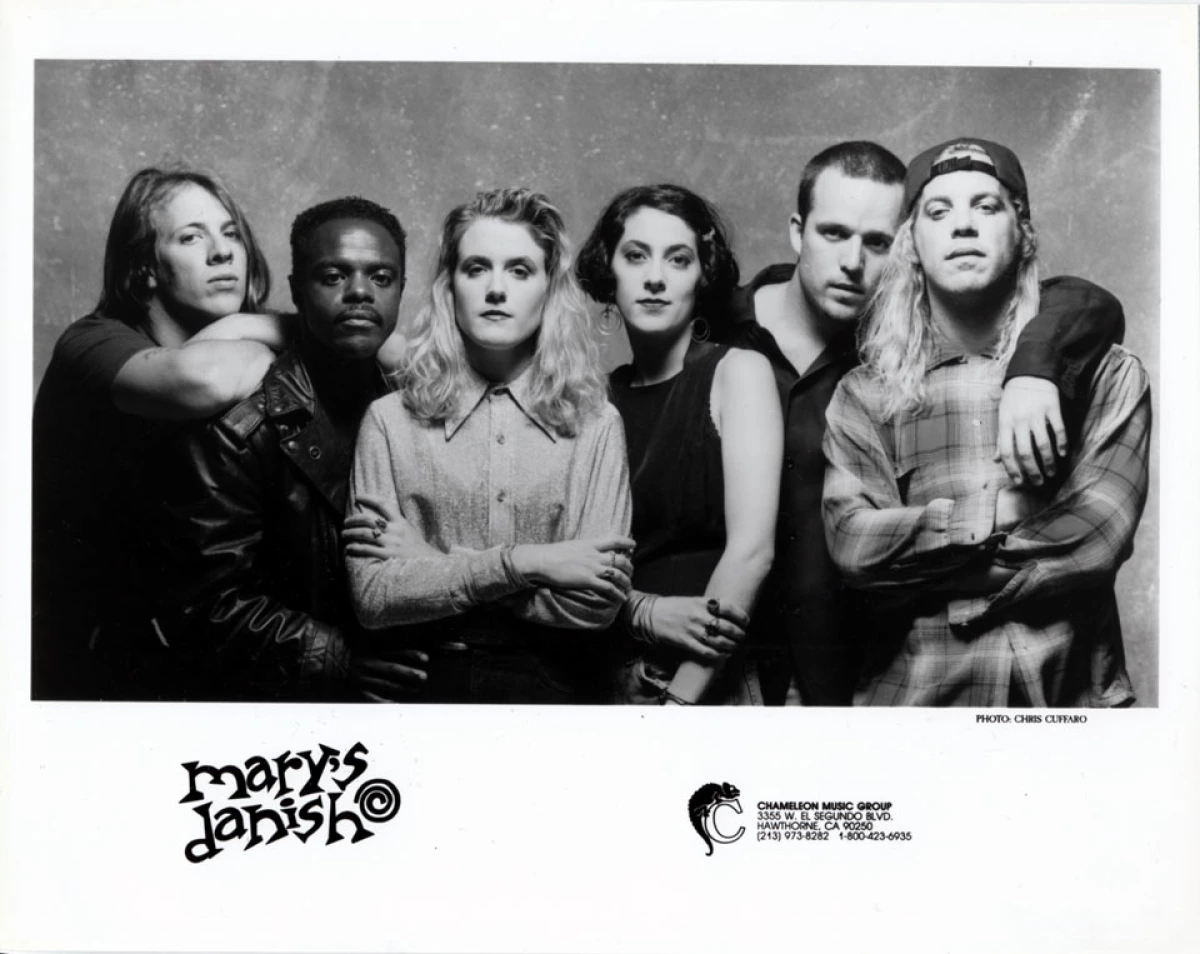He Became Cumbersome!!: A Chat with Jason Pollock of Seven Mary Three
Discography:
Churn
(5 Spot Records, 1994)
American
Standard (Mammoth/Atlantic, 1995)
RockCrown
(Atlantic, 1997)
Orange
Ave. (Atlantic, 1998)
The
Economy of Sound (Mammoth/Hollywood, 2001)
Dis/Location
(DRT, 2004)
Day & Nightdriving (Bellum, 2008)
Popular Tracks: Cumbersome, Lucky, Water’s Edge, Over Your Shoulder, Wait
Seven Mary Three, named after a call on “CHIPs” burst out of Florida in 1995 with “Cumbersome,” one of those so-called ‘alternative rock classics’ that still gets played almost every day somewhere in the country. Forming at William & Mary college in Williamsburg, VA, the band quickly earned fame but couldn’t hold onto it. Having been on hiatus for almost a decade at this point, I ended up reaching out to former guitarist Jason Pollock, who has not been with the band since 1999. This interview was conducted around 2016.
Pete Crigler: When did you become interested in playing music?
Jason Pollock: 16, or 17. I started practicing seriously around age 18.
Pete: How did 7M3 come together?
Jason: I met Jason Ross (singer/guitarist) at William and Mary, and we started playing, and writing songs together.
Pete: Did the whole band come together at William and Mary?
Jason: Mostly. Giti Khalsa (drummer) was a fellow student. We got Casey Daniel (bassist) from Orlando, Jason Ross' home town.
Pete: What was the scene around you guys like at the time?
Jason: There was no scene. There were a few bands around the W&M area, but no scene.
Pete: Where was Churn recorded and how did it feel being in the studio?
Jason: Churn was recorded in Charlottesville. It was exciting, scary, and mostly a realization that we might be able to make something of ourselves.
Pete: Is it true that you guys graduated from school as the majors were circling?
Jason: No, we had graduated one, or two years before.
Pete: What was it like getting signed to Mammoth/Atlantic and how do you feel about it now?
Jason: Mammoth was a dream come true for us... Atlantic less so. Mammoth was a small business, and treated us very well.
Pete: How interesting was it making that first record?
Jason: Wonderful times. Different times, too. Back then, being able to make a record in a real studio meant something- home studios were still a novelty - and you had to be able to play... there were no computers yet to "correct" mistakes, or off-pitch vocals. We recorded and mixed a song, or two a day, the record done in two weeks.
Pete: What were the inspirations for Cumbersome and Water’s Edge?
Jason: Sorry, but I didn't write lyrics, nor sing back them, so I can't help you there. Musically, I wrote chords with basic, garage rock in mind.
Pete: What was success like and how did everyone react?
Jason: We did alright, I suppose. We had a tightly knit group of people around us, a manager who looked out for us. In a way, we were lucky- we could walk the streets unrecognized.
Pete: Did the band feel any pressure making RockCrown?
Jason: Not at all. We were too young and naive to think about pleasing anybody.
Pete: Do you feel the band was a sophomore slump with that record?
Jason: From an economic standpoint, absolutely. We shot ourselves in the foot by trying to stretch out immediately, and change direction a bit with the songs. The recording was done almost live, with very little commercial consideration. But, the lack of the record's success wasn't entirely our fault. Mammoth and Atlantic parted ways, and we got caught in the middle for about 6-8 months. The record, and the band, sat on a shelf.
Pete: What was the impetus for making and releasing Orange Ave. so quickly?
Pete: We had the songs, and liked to keep moving, so why not? We saw that Atlantic had lost interest in promoting RockCrown, so we decided to try a new product.
Pete: What caused your departure from the band?
Jason:
I lost my songwriting mojo, and spiraled out of control a bit, losing interest
in the whole process. The band let on that they might be better off without me,
so I quit. They wanted to try to get the band to be more commercially viable.
Pete: Did you keep up with the guys after you left?
Jason: A little bit.
Pete: What did you end up doing after you split?
Jason: I got back on the horse again, and started learning to write lyrics and to sing.
Pete: Tell me about The Pollocks.
Jason: I started recording at home around 2008, then recruited musicians to play live. We record in a home studio, but use equipment dating from the stone age. Tape machines, vintage gear, etc. Still gotta be able to play, no computers here. Songs are garage/psychedelic/indie blues. Live, the band is a runaway train coming into the station, and the station gets out of the way.
Pete: What are you currently up to besides the band?
Jason: The band is all that I do, besides vacuuming the floor every once in a while.
Pete: Do you know what the others are currently doing?
Jason: Not really.
Pete: What do you think of the impact of alternative rock on the ‘90s?
Jason: It was a strange, beautiful time to be young, and to be a part of such a diverse scene.
Pete: Any interesting tour stories?
Jason: We opened up a segment of an Aerosmith tour, and one night I got caught up in the moment and threw my prized, and only Les Paul guitar into the air as high as I could. It smashed into pieces upon landing. We decided to have a laugh, and took the pieces to Joe Perry. We apologized for accidentally destroying one of his guitars. He shrugged and said, "Don't worry about it, I get those cheap". I later had the guitar put back together, and I play it live to this day.
Pete: What do you think 7M3’s legacy will be?
Jason:
We will be remembered for improving people's vocabulary, and for how much
"Cumbersome" rocked.






Comments
Post a Comment